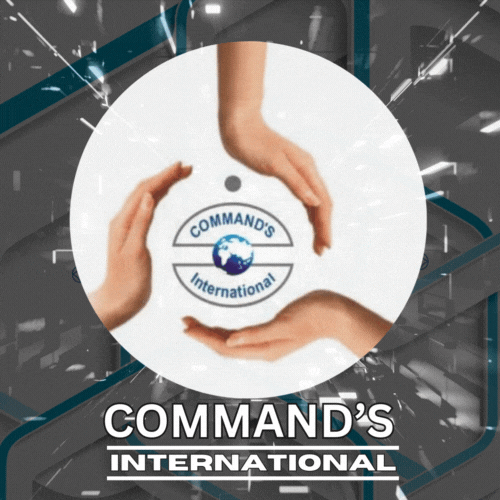

Schools are dynamic spaces that foster learning, personal growth, and development. Whether you’re a student, teacher, or visitor, understanding the vocabulary associated with schools helps in navigating this environment. Here’s an extensive guide to terms related to school life, facilities, supplies, subjects, and activities.
Key Areas in a School
- Classroom – A room equipped with desks, chairs, a whiteboard, and teaching materials where lessons are conducted.
- Library – A place with shelves of books, magazines, newspapers, and digital resources for reading, studying, or research.
- Playground – An outdoor area with swings, slides, and open spaces for games and sports activities.
- Cafeteria or Lunchroom – A space with tables and chairs where students and staff have their meals or snacks.
- Auditorium – A large hall used for assemblies, plays, concerts, and award ceremonies.
- Principal’s Office – The administrative center where the school principal works and meets parents or staff.
- Science Laboratory (Lab) – A specialized room with equipment like microscopes, test tubes, and beakers for experiments and hands-on learning.
- Computer Lab – A room with computers and internet access for teaching technology and software skills.
- Art Room – A creative space with paints, brushes, clay, and other art supplies for drawing, sculpting, and crafting.
- Music Room – A room with musical instruments such as keyboards, drums, and guitars for teaching music and practice.
- Gymnasium (Gym) – A large indoor area with sports equipment for physical education classes, basketball, and other sports.
- Staff Room or Teacher’s Lounge – A space for teachers to relax, plan lessons, and discuss work.
- Hallway or Corridor – The passageways connecting classrooms, offices, and other areas of the school.
- Assembly Area – An open space or hall where the entire school gathers for morning prayers, announcements, or special events.
Common School Supplies
- Notebook – A book with lined or blank pages for writing class notes or homework.
- Textbook – A book containing information and exercises for a particular subject.
- Pen and Pencil – Essential tools for writing and sketching.
- Eraser – Used to remove pencil marks.
- Ruler – A tool for measuring and drawing straight lines.
- Compass – Used in geometry for drawing circles or arcs.
- Sharpener – A small device for sharpening pencils.
- Glue Stick – A convenient tool for sticking paper together.
- Markers and Highlighters – For underlining or marking important text.
- Binder or Folder – Used to organize and store loose sheets of paper.
- Crayons, Colored Pencils, and Paints – For creative projects and artwork.
- Calculator – A device used in mathematics for solving problems.
- Whiteboard and Markers – Found in classrooms for teachers to write and explain lessons.
Subjects Taught in School
- Mathematics – Includes arithmetic, algebra, geometry, and statistics.
- Science – Divided into biology, chemistry, and physics.
- English – Focuses on grammar, vocabulary, literature, and writing skills.
- History – The study of past events, civilizations, and cultures.
- Geography – The study of maps, landforms, climates, and populations.
- Social Studies – Includes history, geography, civics, and economics.
- Physical Education (P.E.) – Teaches fitness, health, and various sports.
- Art and Craft – Encourages creativity through drawing, painting, and crafting.
- Music – Teaches singing, playing instruments, and understanding musical concepts.
- Computer Science – Covers basic computer skills, coding, and internet safety.
- Languages – Learning additional languages like Spanish, French, or Hindi.
People in a School
- Principal – The head of the school responsible for administration and management.
- Teachers – Educators who guide and teach students in various subjects.
- Students – Individuals enrolled in the school for learning.
- Librarian – Manages the library and helps students find books or resources.
- Counselor – Provides academic, personal, and career guidance.
- Janitor or Custodian – Ensures cleanliness and maintenance of the school premises.
- Coach – A teacher specializing in physical education and sports training.
- Assistant Teacher – A person who supports the main teacher in the classroom.
Activities in School
- Reading – Comprehending books, articles, and texts.
- Writing – Creating essays, stories, or reports.
- Group Discussions – Sharing ideas and working collaboratively with classmates.
- Drawing and Painting – Creating art for projects or competitions.
- Experimenting – Conducting science experiments in the lab.
- Sports and Games – Playing soccer, basketball, or other physical activities.
- Performing Arts – Participating in drama, dance, or music performances.
- Examinations – Testing knowledge through written or oral assessments.
- Homework – Assignments given by teachers to complete at home.
- Field Trips – Educational outings to museums, zoos, or historical sites.
School Events
- Annual Day – Celebrating achievements with performances and speeches.
- Sports Day – A day dedicated to athletic competitions and awards.
- Science Fair – Showcasing projects and innovations by students.
- Cultural Fest – Celebrating traditions through performances and exhibits.
- Parent-Teacher Meetings – Discussions about student progress and development.
- Graduation Ceremony – Celebrating the completion of an academic year or course.
Practice Questions
- What items are commonly found in a student’s backpack?
- Name three areas in a school where group activities are held.
- Which room in a school contains books and resources for research?
- List five school supplies that are essential for every student.
- Describe the role of a principal in a school.
📌 Learn More with www.commandsglobal.com
Unlock the world of school vocabulary and communicate effectively in an academic setting! 🎒📖

